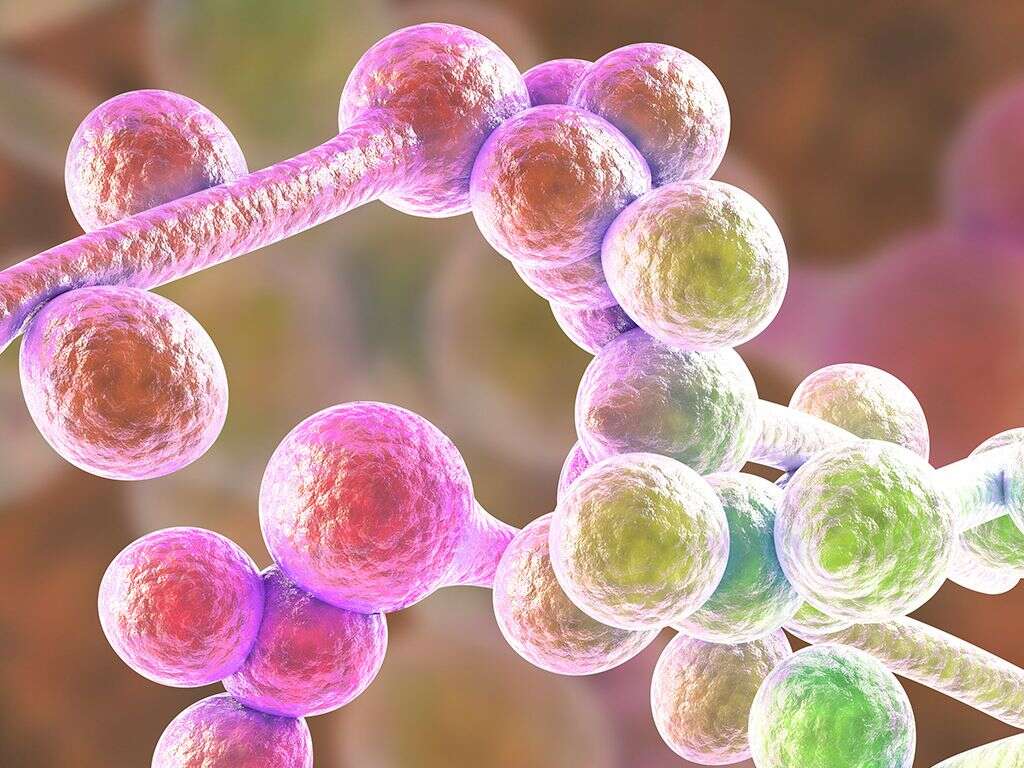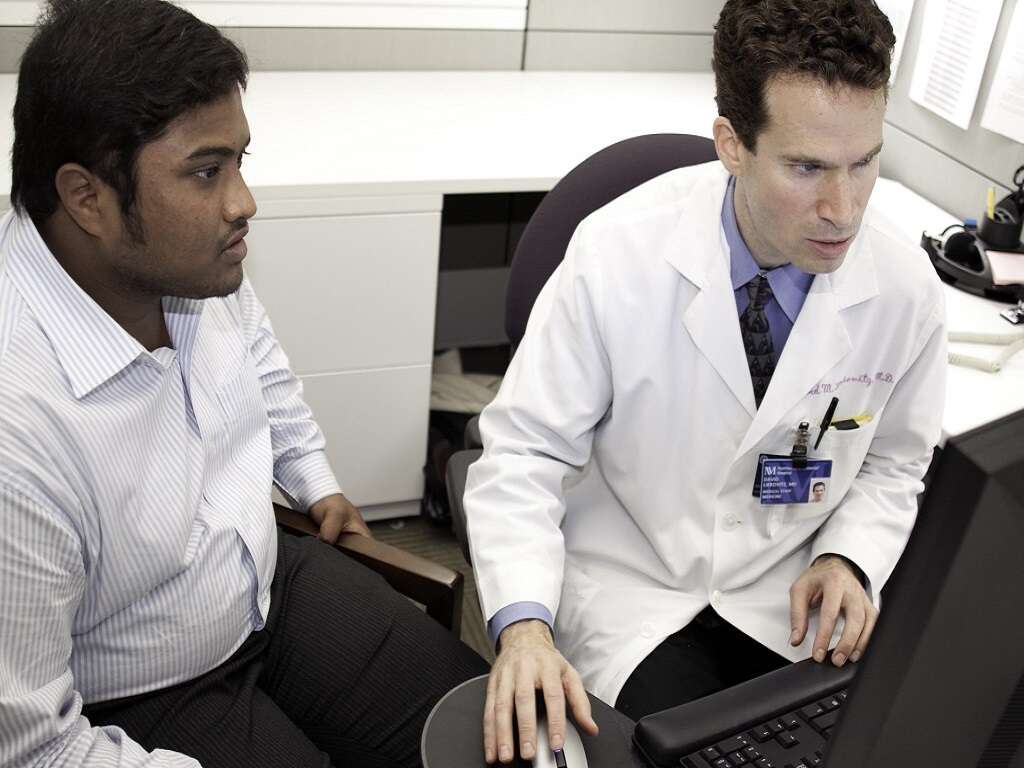10 Symptoms of Yeast Infections In Men
While yeast infections are more common in women, they also affect men. Most yeast infections are caused by a fungus known as Candida albicans which is present in various parts of the body, including the mouth, the gut and other moist areas like the groin. Yeasts can also live in the armpits, and the spaces between the fingers and between the toes. The presence of yeasts within and on the body normally poses no danger. However, if they grow too fast, they can cause infections on parts of the body including the mouth, the esophagus and the gut.
Yeast infections can cause a lot of discomfort. However, some infected men show no signs. But how would a man know that he has a yeast infection? Keep reading to discover the 10 most common yeast infection symptoms in men.

Symptom #1: Red Rash On The Penis
A red rash on the penis can be a sign of yeast infection. In other instances, white, shiny patches cover the penis. In both cases, itching and a burning feeling may also be present. The folds of skin on the penis and the space under the foreskin hold moisture and warmth. This provides the type of condition in which yeasts can grow faster than usual.
The resultant overgrowth of yeasts leads to the appearance of the rash and other associated symptoms. Penile rash may also be caused by other infections including sexually transmitted infections. Whatever the cause, you should seek treatment for any rash on the penis.

Symptom #2: Yeasty Smelling Discharge
Genital discharge is usually associated with women. But a yeast infection in men can also lead to a whitish discharge from the urethra. The discharge is usually thick with a yeasty smell. It is usually accompanied by an itch, pain or a burning sensation. These are additional yeast infection symptoms in men. In most cases, the burning sensation is amplified when urinating.
It is important that you seek treatment if you notice any whitish, yeasty smelling penile discharge. Also bear in mind that other conditions like gonorrhea trichomoniasis and chlamydia can present with penile discharge.
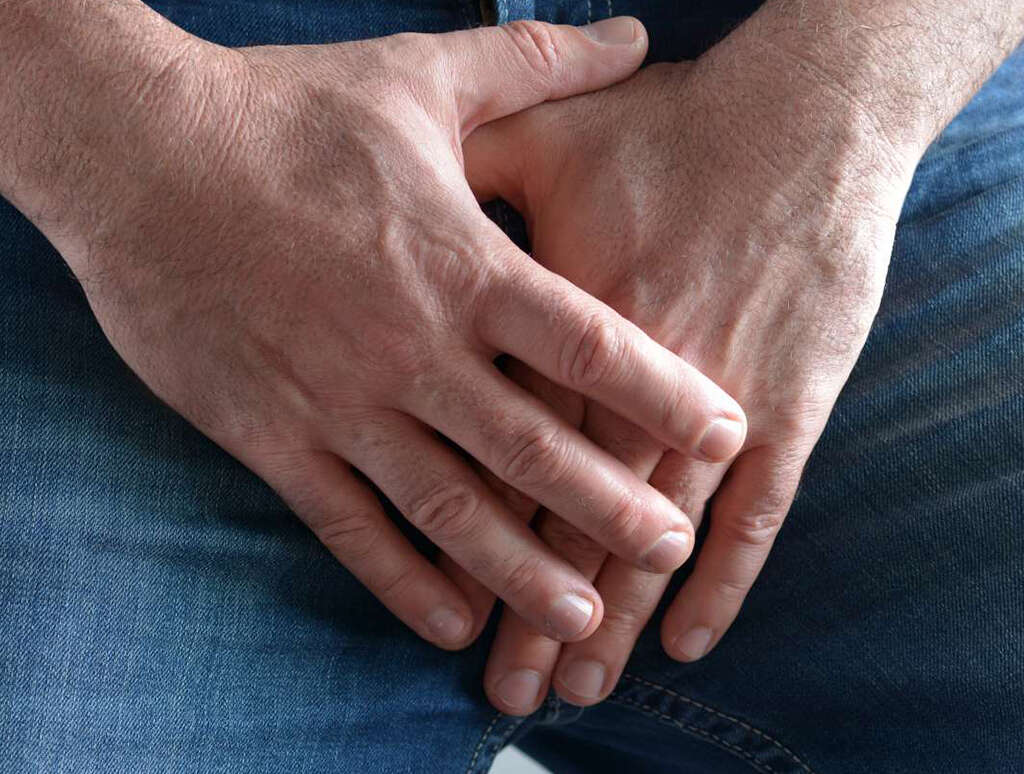
Symptom #3: Swollen Foreskin
A swollen foreskin may be a symptom of yeast infection in men. The swelling may occur due to the inflammation caused by the yeast infection. It may also result from an allergic reaction caused by the overgrowth of yeast.
It is worth noting that yeasts are usually present both within the gut and on the skin. However, their numbers remain in check unless the normal conditions change as a result of poor hygiene, reduced immunity or taking antibiotics. This can lead to conditions that are favorable for excessive growth of yeasts which may lead to yeast infections. It is always advisable to watch out for yeast infection symptoms in men and to seek treatment.

Symptom #4: Foreskin Tightness
Foreskin tightness occurs as a result of the inflammation of the glans and the foreskin. This leads to swelling of both the glans and the foreskin, making it difficult to pull back the foreskin. Foreskin tightness may be accompanied by the rest of the symptoms of yeast infections in men.
Some studies suggest that circumcision may reduce the risk of getting penile yeast infections. However, according to other studies, both circumcised and uncircumcised men face a similar risk of infection. If you suffer from frequent bouts of foreskin tightness, you can consider talking with your doctor about the merits and demerits of circumcision.
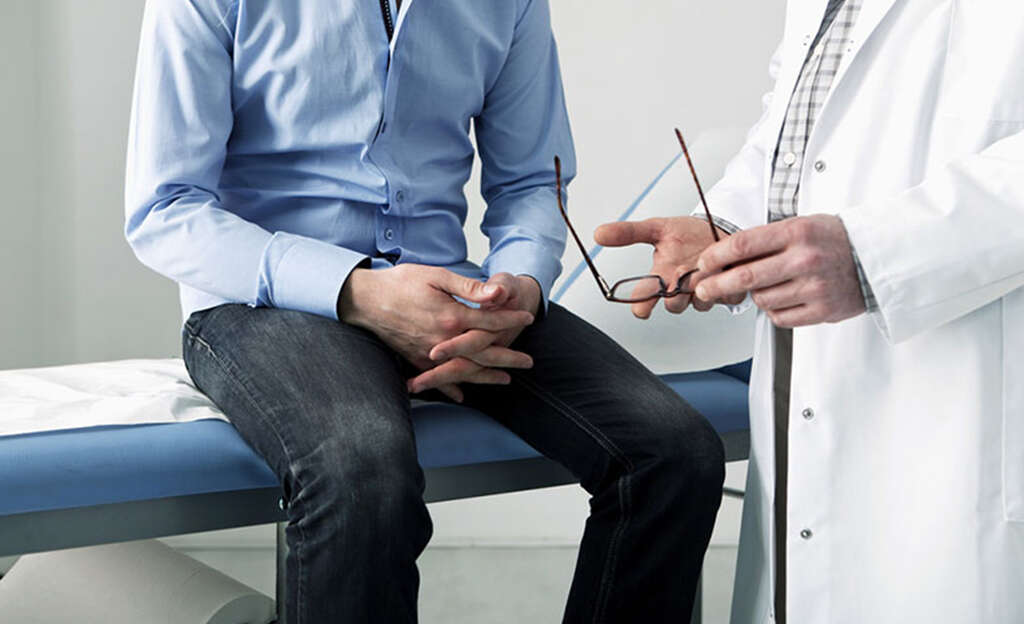
Symptom #5: Pain When Urinating
Pain when urinating may be a symptom of yeast infection in men. Overgrowth of yeast in the urethra can cause inflammation. The pain occurs during urination when the urine, which is acidic, comes into contact with the inflamed parts of the urethra. This can make you despise even the thought of going to the urinal.
Pain in the urethra may also be accompanied by discharge from the penis, rash on the glans and a swollen foreskin. Pain during urination may also be a symptom of another infection including STDs like gonorrhea. For this reason, it is important to consult a doctor for treatment as soon as possible.
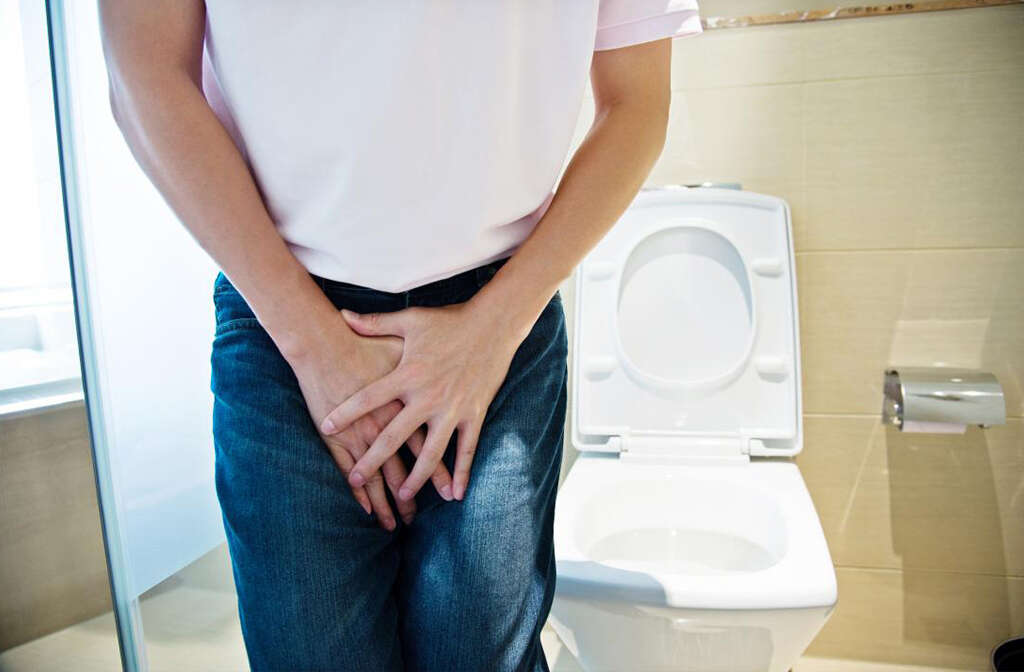
Symptom #6: Oral Lesions
As mentioned earlier, yeast infections can affect the mouth. The condition known as oral thrush is more common in people with a compromised immune system such as those with HIV. It can also occur after taking antibiotics for a long period of time.
Oral thrush presents with symptoms like white lesions in the oral cavity including the tongue, cheeks, gums and sometimes even the palate and the tonsils. Cracks may also appear at the corners of the mouth. These symptoms of yeast infections in men may be painful and make eating, drinking and talking difficult. If the white lesions come off of the infected surface, a raw-looking, inflamed surface appears. It is prudent to seek treatment without delay in case you get oral thrush.
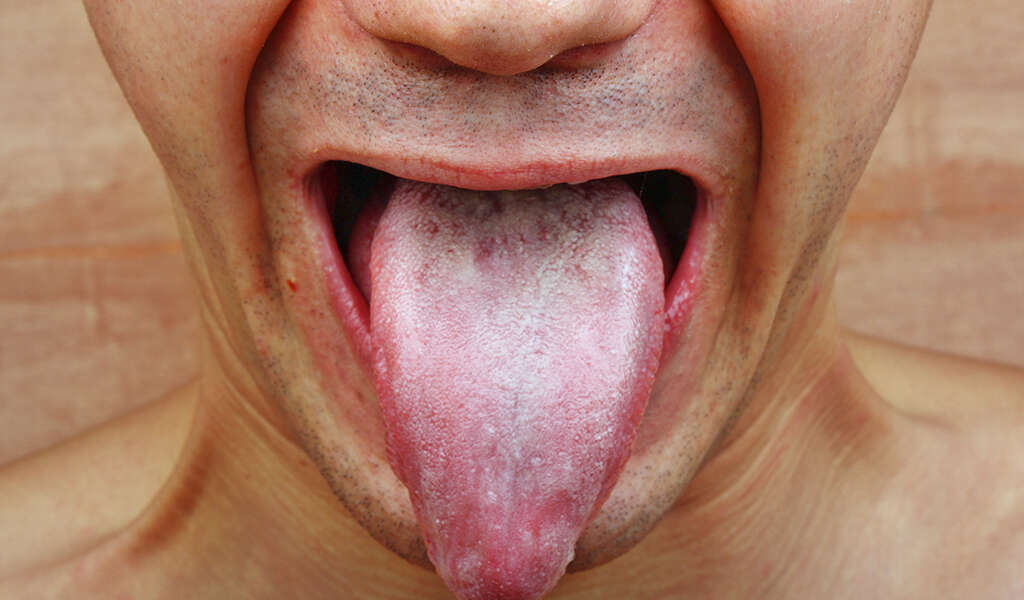
Symptom #7: Peeling Skin
Yeast infections in men may also present with peeling skin on the penis or any other affected areas. In some individuals, yeast infections can cause the skin of the penis to dry up and thereafter to start peeling off.
While this may only affect the top layer of the skin, it may also go deeper such that small cracks and cuts form. This may lead to oversensitivity when touched or during sex. It is worth to note that while penile yeast infections in men are not STDs, they can be passed to a sexual partner. For this reason, it is advisable that you avoid sex when you are infected. You should also seek treatment.

Symptom #8: Brittle Discolored Nails
Besides affecting the penis and other parts of the skin, yeast infections can affect the nails. This can lead to ugly-looking, brittle and discolored finger and/or toe nails. The nails may also seem to have lines running lengthways.
Additionally, the nails will have some debris collecting underneath which may cause them to lift off their bed on the fingers or toes. The dryness may cause the nails to split or break. The condition isn’t usually painful. However, if it is left untreated for a long time, increased nail brittleness and collection of debris can make it difficult to wear shoes.
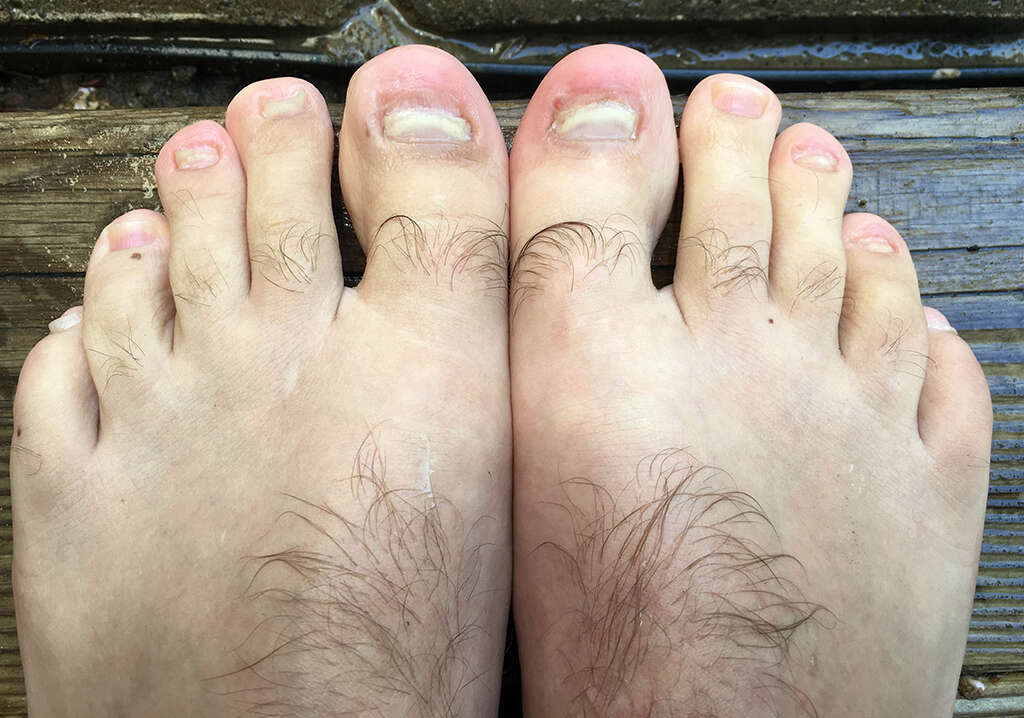
Symptom #9: Chronic Sinus Infections
While it has been assumed that sinus infections are only caused by bacteria, recent research shows that some of the chronic sinus infections are a result of fungal infections including those by yeasts. A study carried out by Mayo Clinic found that 96 percent of the sampled 210 patients had fungal infections. This suggests that sinus problems may be symptoms of yeast infections, especially Candida.
Extended or regular use of antibiotics could be an important factor in the continued sinusitis. This occurs because, while antibiotics are meant to kill harmful bacteria, they also kill beneficial bacteria which normally keep harmful organisms like yeasts within and on the body in check.
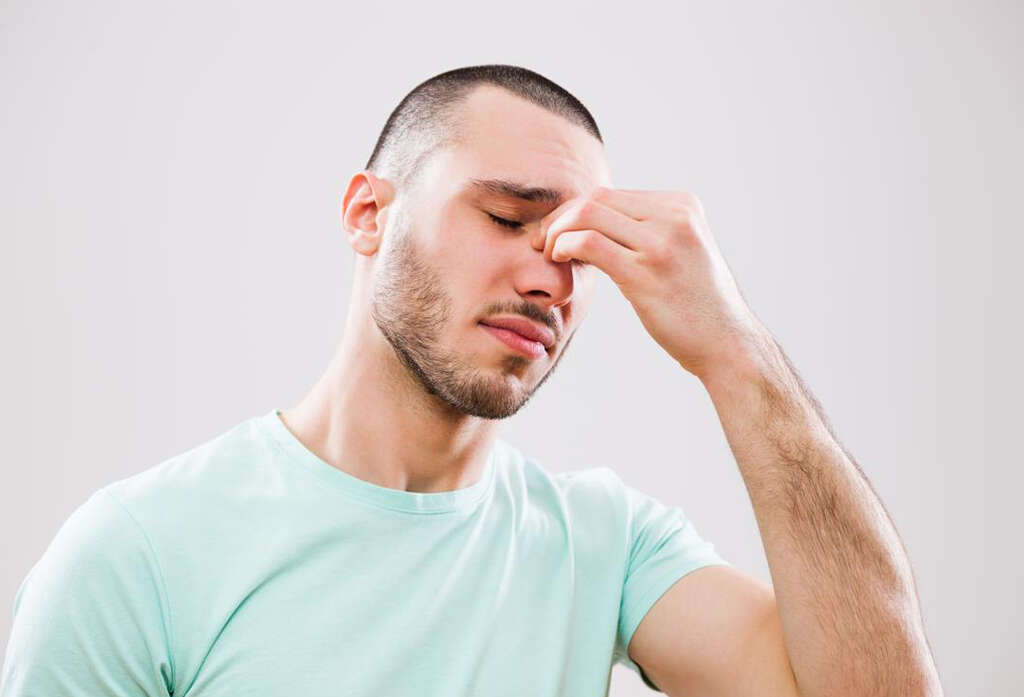
Symptom #10: Chronic Fatigue
This may seem misplaced among the yeast infection symptoms in men. But, as mentioned earlier, yeasts are also found internally within the digestive system. If for some reason these yeasts and other harmful microorganisms overgrow within the gut, they can overcrowd the beneficial microorganisms. This would lead to a situation whereby the digestive system is thrown off-balance. As a result, digestion of food does not happen as it should. This can lead to excretion of semi-digested foods, robbing the body of the excreted nutrients.
When this goes on for a long time, the body is deprived of essential nutrients like vitamins A and B6, fatty acids and minerals like magnesium and iron. The resultant deficiencies can cause chronic fatigue. Other symptoms of yeast infections associated with yeast overgrowth in the gut include brain fog, low mood, food sensitivities and digestive problems.








